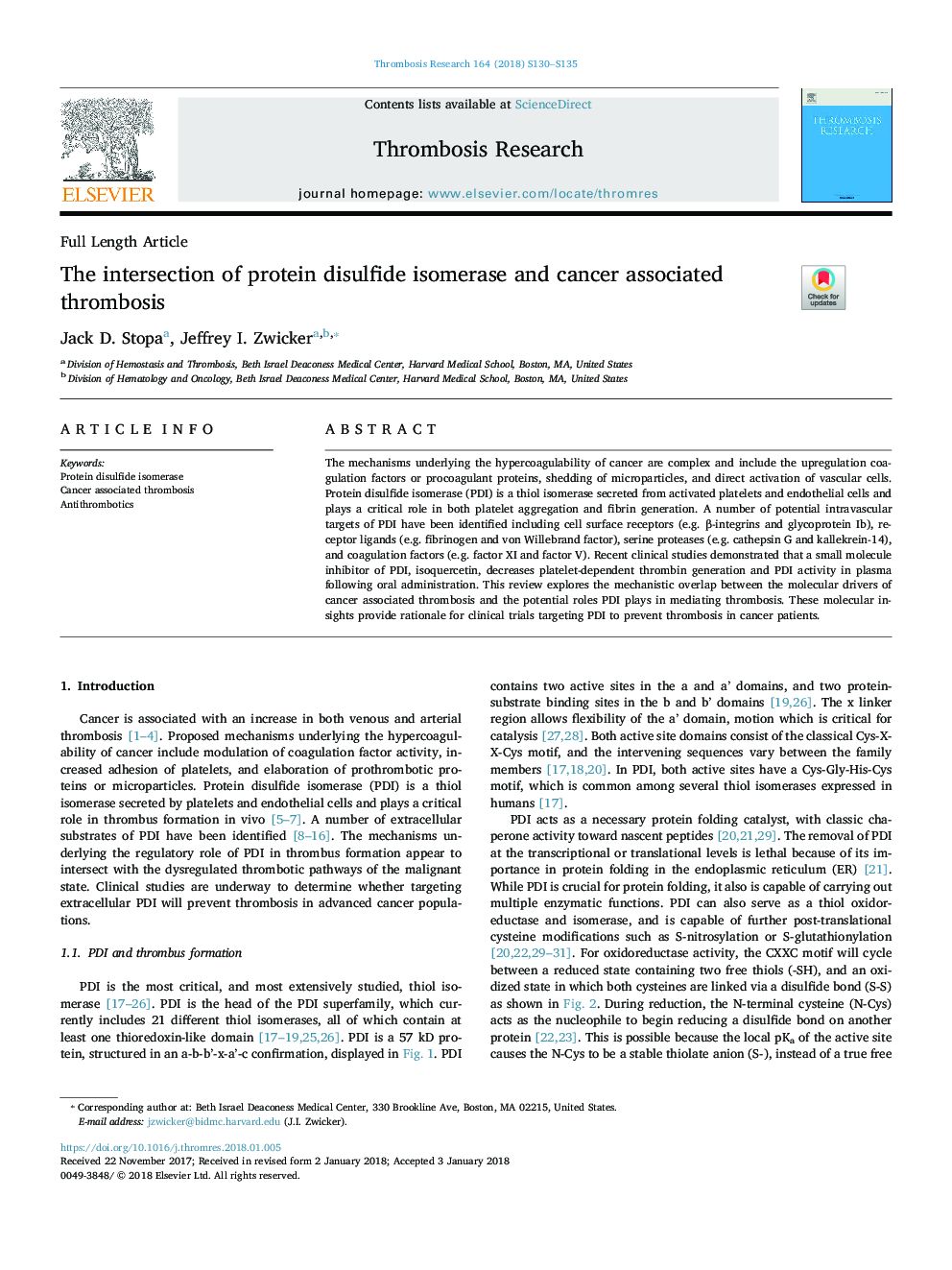| کد مقاله | کد نشریه | سال انتشار | مقاله انگلیسی | نسخه تمام متن |
|---|---|---|---|---|
| 8679490 | 1579179 | 2018 | 6 صفحه PDF | دانلود رایگان |
عنوان انگلیسی مقاله ISI
The intersection of protein disulfide isomerase and cancer associated thrombosis
ترجمه فارسی عنوان
تقاطع پروتئین دیسولفید ایزومراز و ترومبوز مرتبط با سرطان
دانلود مقاله + سفارش ترجمه
دانلود مقاله ISI انگلیسی
رایگان برای ایرانیان
کلمات کلیدی
پروتئین دی سولفید ایزومراز، ترومبوز مرتبط با سرطان، آنتی ترومبوتیک،
موضوعات مرتبط
علوم پزشکی و سلامت
پزشکی و دندانپزشکی
کاردیولوژی و پزشکی قلب و عروق
چکیده انگلیسی
The mechanisms underlying the hypercoagulability of cancer are complex and include the upregulation coagulation factors or procoagulant proteins, shedding of microparticles, and direct activation of vascular cells. Protein disulfide isomerase (PDI) is a thiol isomerase secreted from activated platelets and endothelial cells and plays a critical role in both platelet aggregation and fibrin generation. A number of potential intravascular targets of PDI have been identified including cell surface receptors (e.g. β-integrins and glycoprotein Ib), receptor ligands (e.g. fibrinogen and von Willebrand factor), serine proteases (e.g. cathepsin G and kallekrein-14), and coagulation factors (e.g. factor XI and factor V). Recent clinical studies demonstrated that a small molecule inhibitor of PDI, isoquercetin, decreases platelet-dependent thrombin generation and PDI activity in plasma following oral administration. This review explores the mechanistic overlap between the molecular drivers of cancer associated thrombosis and the potential roles PDI plays in mediating thrombosis. These molecular insights provide rationale for clinical trials targeting PDI to prevent thrombosis in cancer patients.
ناشر
Database: Elsevier - ScienceDirect (ساینس دایرکت)
Journal: Thrombosis Research - Volume 164, Supplement 1, April 2018, Pages S130-S135
Journal: Thrombosis Research - Volume 164, Supplement 1, April 2018, Pages S130-S135
نویسندگان
Jack D. Stopa, Jeffrey I. Zwicker,
